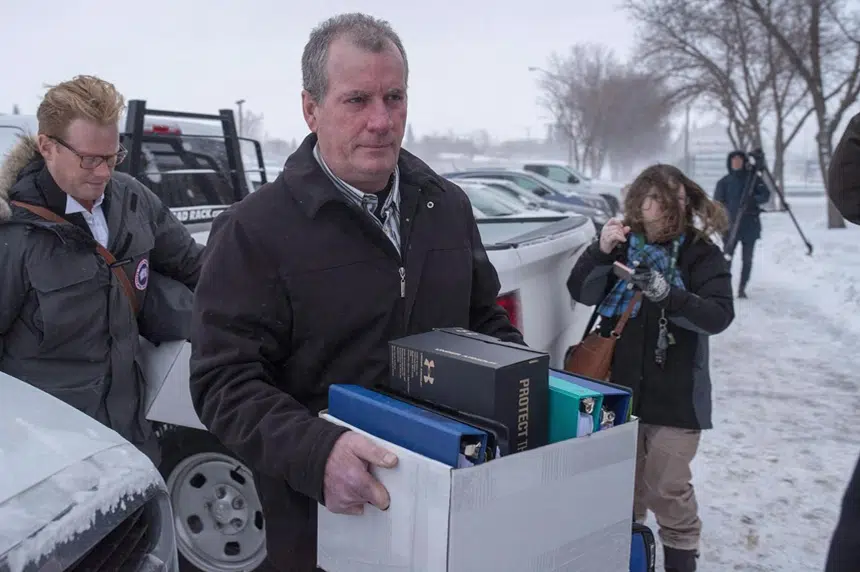One of Saskatchewan’s top defence lawyers is describing the outcome of the Gerald Stanley trial as a no-win situation for the jury involved.
On Friday Stanley was found not-guilty of second-degree murder in the death of 22-year-old Colten Boushie from the Red Pheasant First Nation.
Regina-based lawyer Aaron Fox joined Gormley on Monday to discuss the trial. He said he feels sorry for the jury members. He pointed out the 12 people who served on the jury, in this case, have no way to speak out against public accusations of racial bias.
“They have no ability to respond to all of the allegations that are being made. None of them can speak publicly about their deliberations or what went on,” Fox explained. “None of them can step up and say ‘hey, I was not racist, we decided for this reason.’”
Fox said in his view, officials like the federal justice minister should be defending the jury and the process.
Fox adds he was not surprised by the verdict reached by the jury, saying he believed a conviction of second-degree murder was highly unlikely based on the evidence reported during the trial.
He reminded people the Crown has to prove its case beyond a reasonable doubt.
“At the end of the day, the most we can say is that the jury was not convinced beyond a reasonable doubt that Mr. Stanley was guilty of manslaughter,” Fox said.
Fox said in order to come to a decision on a full acquittal, a jury would have had to conclude based on testimony from witnesses and forensic evidence that the discharge of the gun was accidental and not as a result of a dangerous use of the firearm.
During the trial, Stanley testified that he fired his gun into the air as a warning, but it went off by accident due to a hang-fire, that is, a mechanical defect with a round that causes it to go off late after the trigger is pulled.
Brayford defends jury, calls for positive change
In Saskatoon, veteran criminal defence lawyer Mark Brayford told Gormley he’s been upset to see some of the comments about the jury following Stanley’s acquittal.
“Those that would impute lack of integrity to the jury, that really disturbs me. Those 12 jurors did, I believe, what they believed to be the right thing — and we need to operate on that basis,” he said.
Brayford added a more open process could have helped ease some of the backlash surrounding the jury’s decision.
“We might better understand the result if we could have watched the trial live,” he said.
With many campaigns underway urging people to write elected officials demanding an appeal, Brayford said people should be aware of the limits in what the Crown can pursue.
“Except in very rare cases, you’re not looking at all at what the jury themselves did. Rather, you’re looking at the instructions that were given to the jury by the judge,” he said, noting that appeal courts stick to points of law and don’t re-examine the evidence.
While an appeal may or may not be filed, Brayford said he’d be fine with seeing the Stanley case lead to changes in the system.
“Those kinds of initiatives are the kinds of things that I hope we have energy coming out of this trial in a good way, to make First Nations people feel that the justice system is for everyone.”







